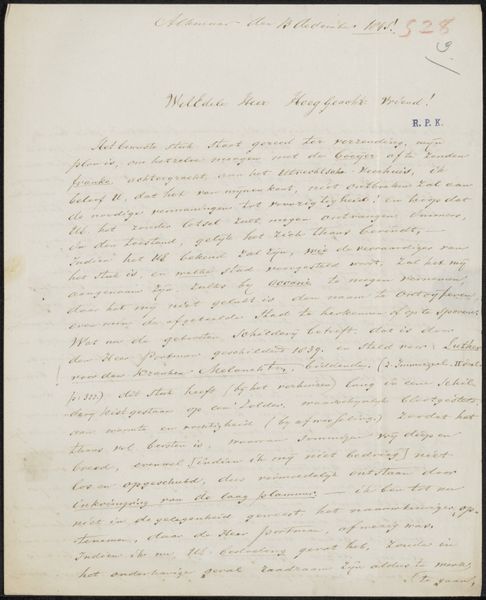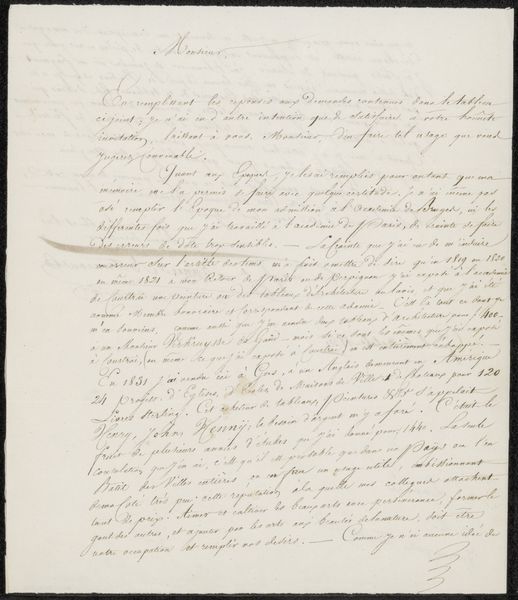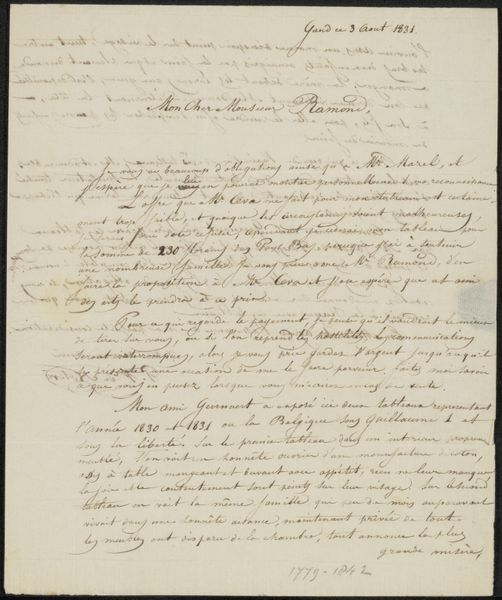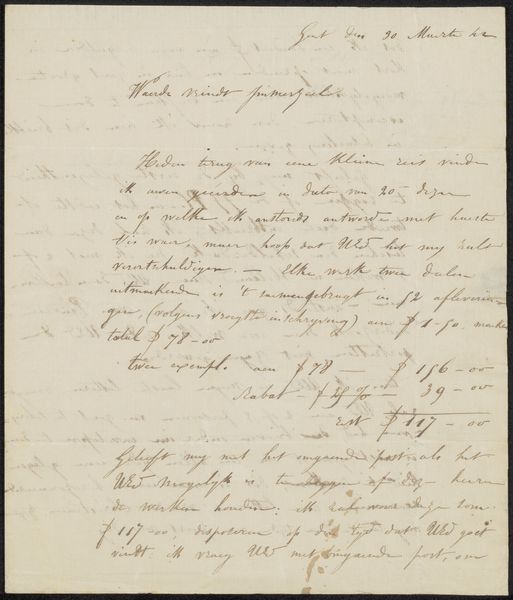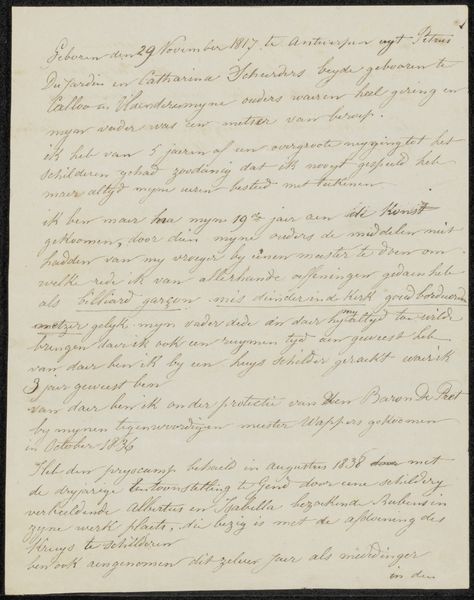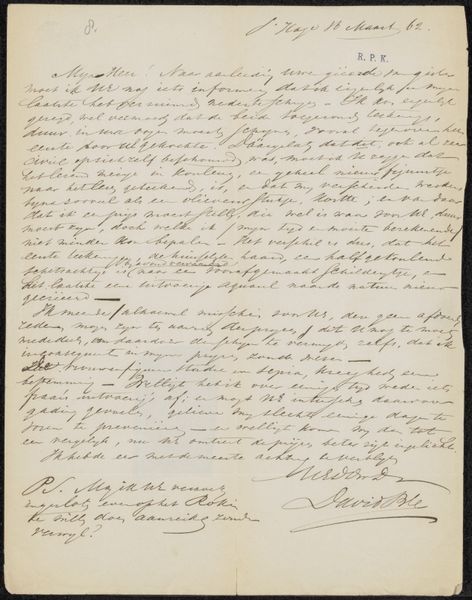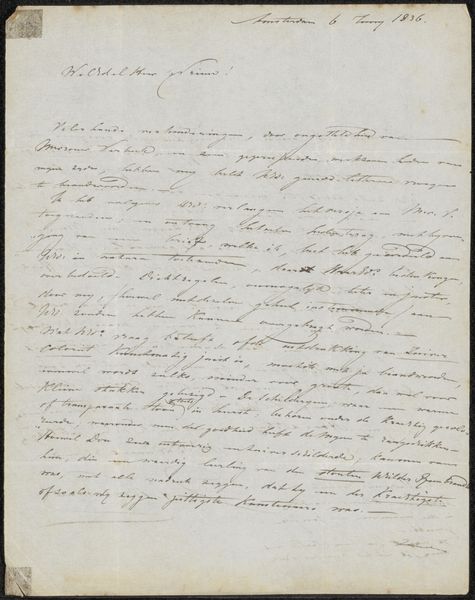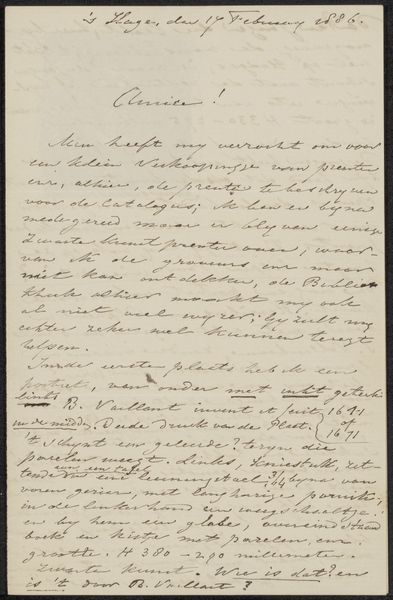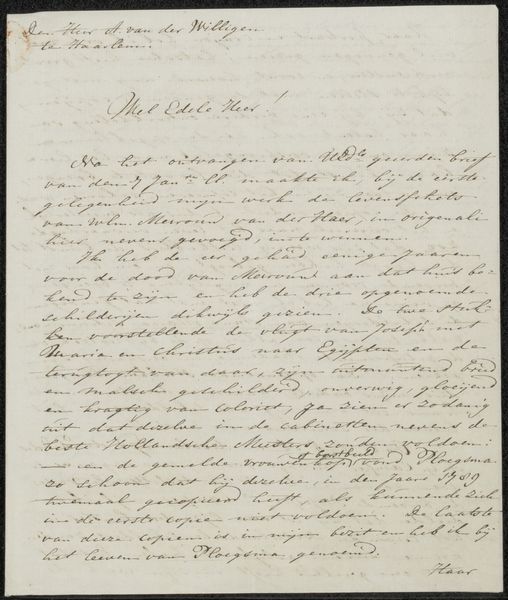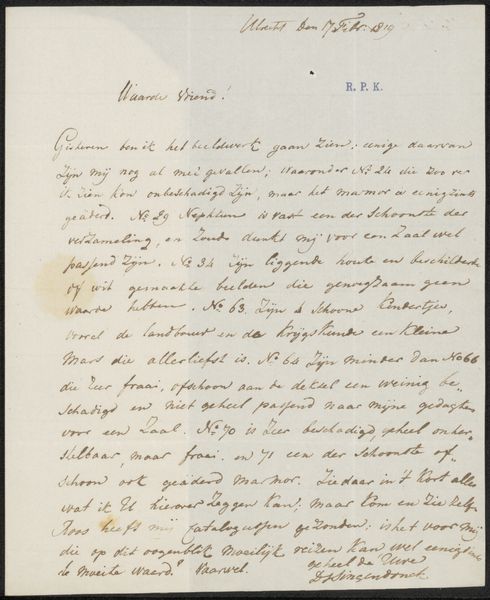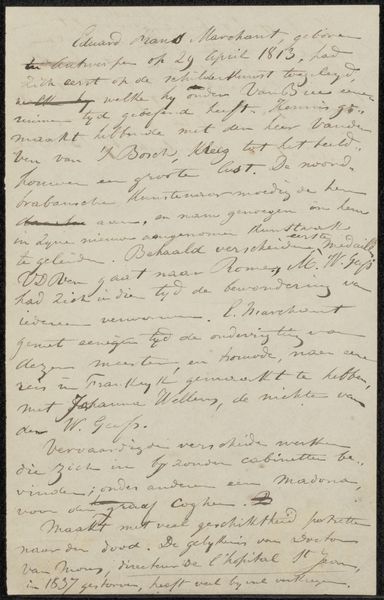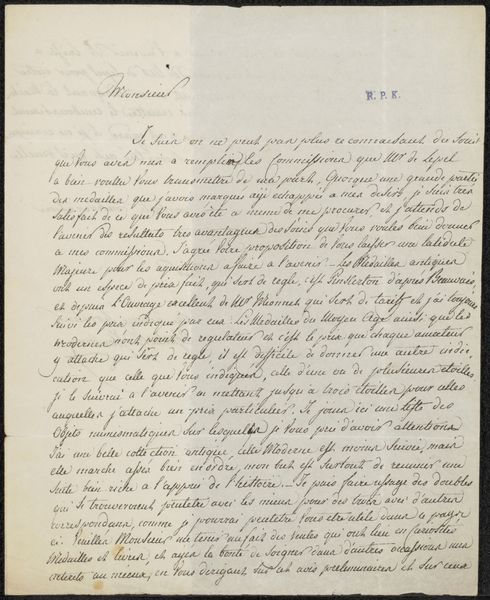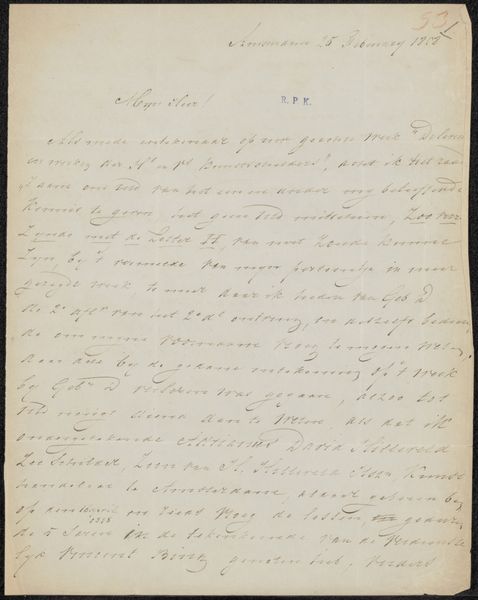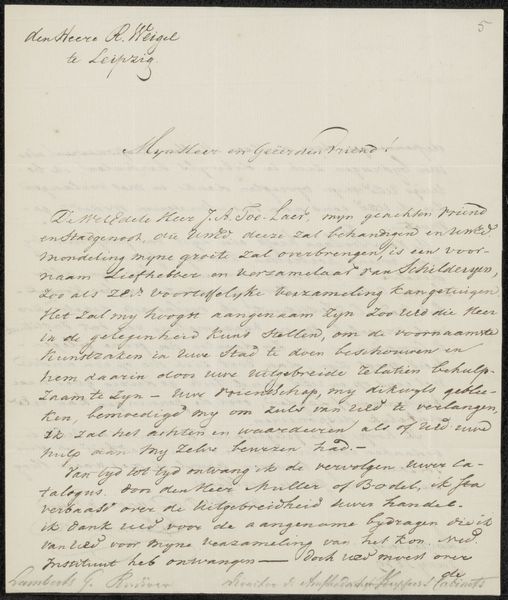
drawing, paper, ink, pen
#
portrait
#
drawing
#
toned paper
#
dutch-golden-age
#
ink paper printed
#
paper
#
personal sketchbook
#
ink
#
ink drawing experimentation
#
pen-ink sketch
#
ink colored
#
pen work
#
sketchbook drawing
#
pen
#
sketchbook art
#
watercolor
Copyright: Rijks Museum: Open Domain
This letter to Mr. and Mrs. Pieter van der Schellingh was written by Jacob de Wit sometime before 1754, the year of his death. It's not just the content of the letter but the very act of its creation that is revealing. Consider the material: paper, likely made from linen rags, a precious commodity in the 18th century. Think about the ink, mixed from gall nuts and iron salts, carefully applied with a quill pen. Each stroke, each flourish, represents time, skill, and intention. The neat, cursive handwriting speaks to a culture of correspondence and the importance of personal connection in a pre-digital age. The letter itself is a testament to the labor involved in communication. Unlike our instantaneous emails, this missive would have been carefully composed, meticulously written, and then entrusted to a messenger for delivery. By appreciating these material aspects, we gain a deeper understanding of the social context and the value placed on written communication in the 18th century. The letter is evidence of a specific time and place, and invites us to consider the human effort embedded within it.
Comments
No comments
Be the first to comment and join the conversation on the ultimate creative platform.
